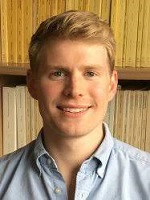Raman-Shifted Fiber Lasers: Spectrally Versatile Sources
Hosted By: Fundamental Laser Sciences Technical Group
27 October 2023 11:00 - 12:00
Fiber lasers are an excellent platform for developing compact, robust laser sources for a wide variety of applications. Many of these applications, however, require light outside of the standard emission wavelengths of fiber lasers.
In this webinar hosted by the Fundamental Laser Sciences Technical Group, Timothy Runcorn will show how stimulated Raman scattering (SRS) in optical fibers can be used to shift the wavelength of fiber lasers with very high efficiency and tailorable spectral properties. Dr. Runcorn will demonstrate that SRS can be used in combination with second-order nonlinear effects in crystals to develop laser sources from the visible to the mid-infrared with parameters that are not available using existing laser technology.
What You Will Learn:
• What stimulated Raman scattering is and its characteristics in optical fibers
• How stimulated Raman scattering can be harnessed to create wavelength versatile fiber laser sources
• How visible and mid-infrared laser sources can be developed by combining stimulated Raman scattering with second-order nonlinear processes
Who should attend:
• Anyone interested in developing wavelength-versatile fiber laser sources
• From graduate students and early-career researchers to senior academics
• Laser engineers in industry
About the Presenter: Timothy Runcon from Imperial College London
 Tim Runcorn is a Royal Academy of Engineering Research Fellow in the Department of Physics at Imperial College London. He received MSci in Physics and MRes in Photonics degrees from Imperial in 2011 and 2012, respectively, followed by a PhD in nonlinear fiber optics in 2016 from the group of Prof. Roy Taylor FRS at Imperial. Between 2016–2018 he was a postdoc in the Femtosecond Optics Group at Imperial, funded by EPSRC Pathways to Impact and Doctoral Prize Fellowship awards to develop visible fiber lasers for super-resolution microscopy. In 2018, he spent a year in industry on secondment to NKT Photonics developing ultrafast lasers for multiphoton microscopy before returning to Imperial to work on commercialisation activities. In 2020, he was awarded a five-year Research Fellowship by the Royal Academy of Engineering to develop new fiber laser technology for advanced biomedical imaging applications.
Tim Runcorn is a Royal Academy of Engineering Research Fellow in the Department of Physics at Imperial College London. He received MSci in Physics and MRes in Photonics degrees from Imperial in 2011 and 2012, respectively, followed by a PhD in nonlinear fiber optics in 2016 from the group of Prof. Roy Taylor FRS at Imperial. Between 2016–2018 he was a postdoc in the Femtosecond Optics Group at Imperial, funded by EPSRC Pathways to Impact and Doctoral Prize Fellowship awards to develop visible fiber lasers for super-resolution microscopy. In 2018, he spent a year in industry on secondment to NKT Photonics developing ultrafast lasers for multiphoton microscopy before returning to Imperial to work on commercialisation activities. In 2020, he was awarded a five-year Research Fellowship by the Royal Academy of Engineering to develop new fiber laser technology for advanced biomedical imaging applications.
